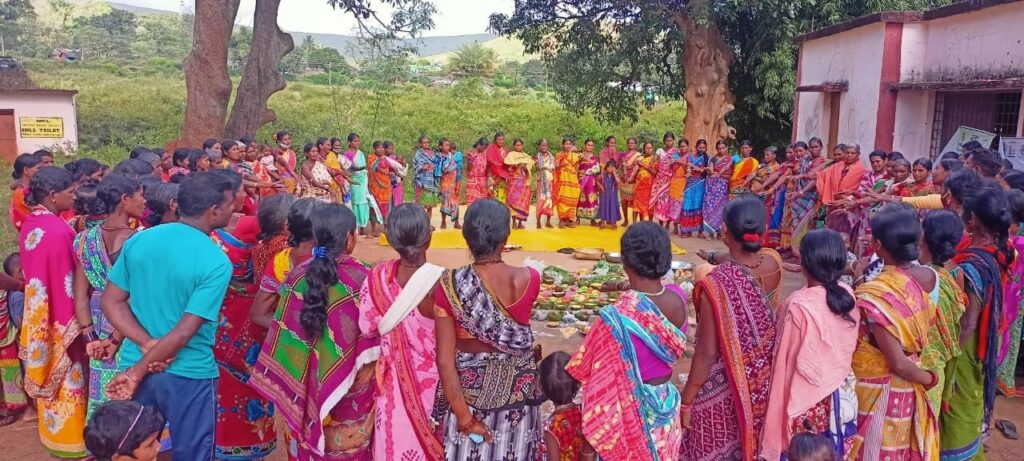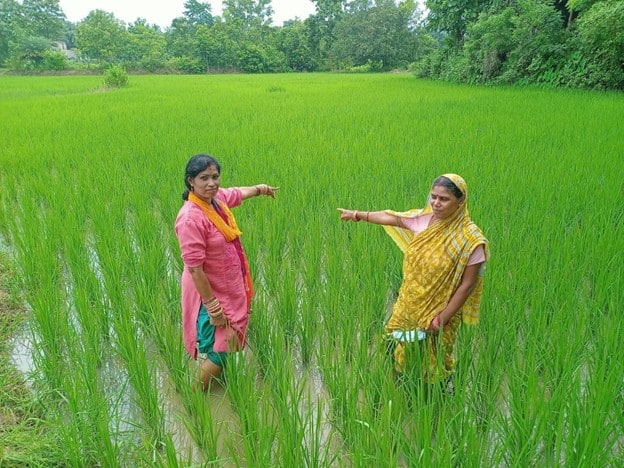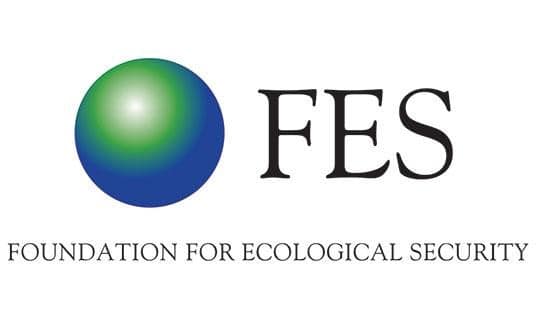Foundation for Ecological Security
To solve problems that affect billions of people, we need solutions to activate these billions and make them problem solvers. To address large-scale problems, especially in agriculture and livelihoods, through simultaneous localised action, it is important to train individuals from the affected communities in skills and capacities that ensure efficient impact.
In the contemporary rural development scenario, it is frontline workers (FLWs) who have the potential to impact millions of lives and drive socioeconomic and environmental change for the better. Yet capacity-building initiatives often fail to sustain their impact, and FLWs are left with no digitally verifiable record of participation, no access to training materials, or experts and peers for implementation guidance.
Any future programs that would benefit from recruiting these FLWs often face delays in engaging them, as the entire ecosystem operates with a siloed view of the roles and limitations of practitioners, the content, artefacts and programs.
Project
Our initiative to capacitate FLWs combines imagination and technology for a solution that works at scale with speed and sustainability. It leads with a design focused on purpose and transparency to bring about systemic shifts at all levels – community, program, state, and ecosystem.
To help bring women to the forefront of agriculture operations in rural areas, the Odisha Livelihood Mission (OLM) began engaging only women Krishi Mitras (farmer friends) as their outreach workers. In most cases, these women are members of self-help groups in the villages. In 2018, we began partnering with the mission to empower Krishi Mitras (KMs) by mentoring them, formalising their skills and capacitating them to demystify the science of sustainable agriculture, to help farmers adopt sustainable agriculture practices with the help of technology.
Capacity building for KMs was reimagined to include the following: low-dose, high-frequency training delivery, guided mentoring for case-based learning and continued support during implementation, leveraging digital platforms to enable skills and capture interactions and activities performed on the field, and making trained cadres and their skills visible and discoverable in the ecosystem.
The initiative uses Participatory Digital Attestation, a single multi-stakeholder platform that enables practitioners like KMs as well as experts, program administrators and other stakeholders to work together and amplify the impact of their efforts. It empowers practitioners by making it easier for them to learn, contribute and assert their skills and qualifications.
Sustained access to demand-driven, context-specific content in different media has enhanced KM’s engagement with communities. And guided mentoring has helped them secure timely resolution of queries during implementation through regular engagement with experts and peers, driving the efficient uptake of sustainable practices. Participatory Digital Attestation helps KMs generate trusted and verifiable data for the allotted gram panchayats, which helps monitor progress, enabling data-driven governance.
The platform immortalises, with consent, a large repository of shareable knowledge, data and artefacts generated by the program for the ecosystem to use as and when. It allows administrators to amplify the efficiency, effectiveness and impact of their programs. Policymakers can then use this trusted and verifiable data to reimagine opportunities for collaboration and convergence. The Hindustan Unilever Foundation, Socion, and Arghyam have supported these efforts.
The initiative ensures sustained opportunity for the professional growth of frontline KMs while delivering a sustained impact. The data generated through this model has been used to recognise their efforts and structure incentives for KMs. We are collaborating with the Agriculture Skill Council of India to certify Krishi Mitras as Agriculture Extension Service Providers, a nationally recognised job role under the Skill India initiative of the Government of India. As of date, 90 KMs have received the certification.
Towards Climate Resilient and Equitable Futures – Intersectional Areas
Impact on Women – The Krishi Mitras
With this digital capacity-building model, the program for improving sustainable agriculture literacy has reached communities faster while being operated sustainably. It has reduced the unit cost of mobilising capacities and provided real-time visibility to field-level performance.
On one hand, the initiative is helping communities contribute to climate change mitigation measures, and on the other, it has changed the role of Krishi Mitras from being diffident frontline workers to those gainfully contributing to village development, economic growth and climate action.
The Krishi Mitras have now gained community recognition for their work and have established an identity for themselves, a major achievement for the women, many of whom were afraid to speak publicly till some time ago. There has also been a shift in their families’ attitudes, who now value them for becoming earning members and for their contribution to others’ well-being.
Improving Incomes & Alleviating Poverty
By March 2022, 750 trained Krishi Mitras have helped 87,181 farmers, mostly small and marginal, about 40% of which are women farmers, adopt sustainable agriculture practices in soil, seed, water and pest management on 2.79 lakh acres of farmland. The efforts also contributed to about a 20% increase in agriculture production in the intervention area, enhancing household incomes.
While all the Krishi Mitras received monthly honorariums of INR 3,000 from OLM, an additional INR 65.3 lakhs were paid as incentives to the 546 KMs who were able to influence farmers to take up sustainable agriculture practices, giving them a supplementary income of about INR 12,000 per annum.
Moving Towards Sustainable Agriculture
Agriculture, while being severely affected by global warming, is also among the major contributors to the phenomenon. It is imperative for communities, especially the poor and vulnerable, to be equipped with the knowledge, tools and support systems to help them adapt to the changing climate and ensure their livelihood resilience. Adopting sustainable agricultural practices also lowers emissions and improves soil and water health, conserving natural resources and local biodiversity.
For communities to transition to implementing sustainable agricultural practices in the current system of production and distribution, they must understand the nitty-gritty of such implementation, and find guidance as well as reliable support. That is where the KMs come in. Belonging to farmer communities, they are able to understand local concerns and convey to farmers the best ways to put sustainable agriculture into practice, influencing a behaviour change among communities that may otherwise be hard to reach for governments or CSOs.
Scalability
The initiative has been scaled up from 5 districts to 8 in Odisha, with the potential for saturation in the state. This participant-centric model for capacity building at scale can be adopted by any program and organization nationally and globally.
By: Foundation For Ecological Security



















